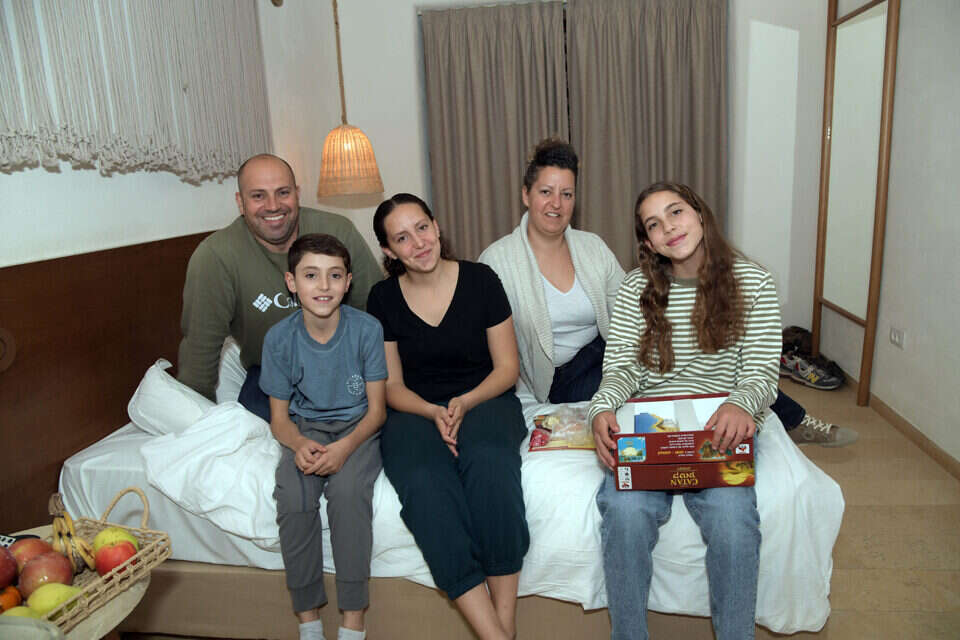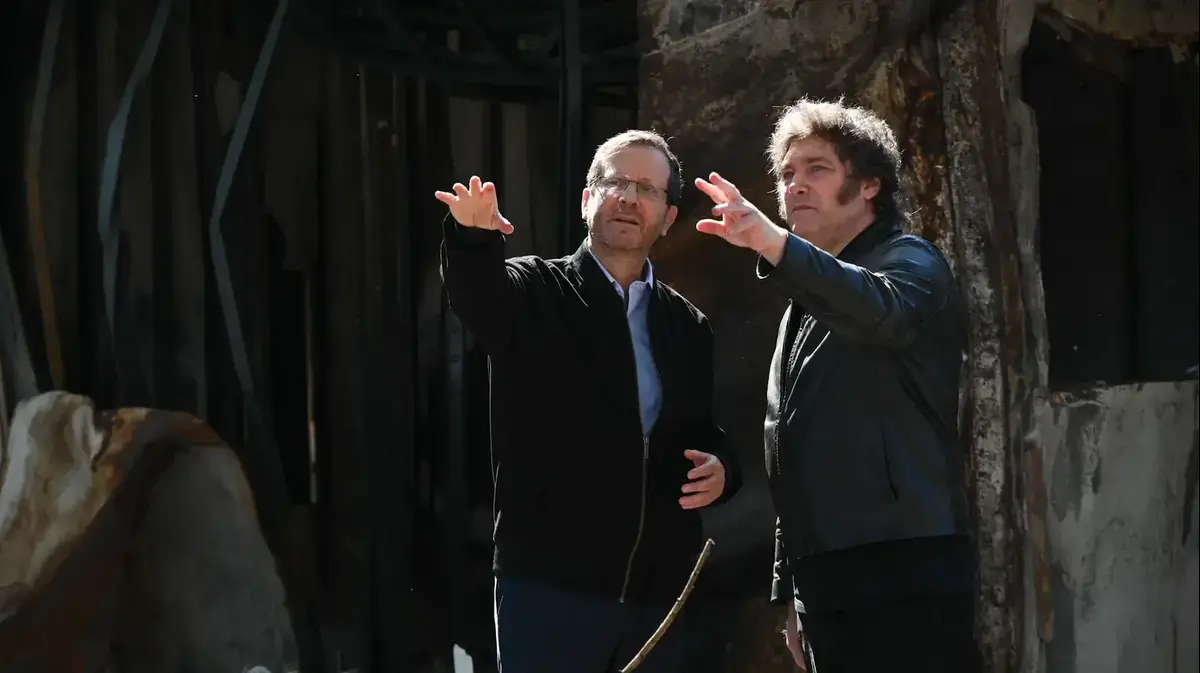Shani Hadar's debut book, "The Feast of the Farm" (Kinneret Zmora), is a romantic comedy whose protagonist is a 29-year-old kibbutznik single woman who is looking for the love of her life.
But for Hadar herself, the main love story that motivated the book is not between her protagonist and the men around her, but her love story for the kibbutz.
Even 20 years after she left Kibbutz Hahotrim, near Haifa, where she was born and raised, and although she went through quite a few hardships, she looks back with nostalgia.
"Everything I wrote could have been written from a tragic point of view, but I wrote it laughing," she says.
Even during our conversation, mixed memories arise, which are not natural material for a romantic comedy.
She describes her life in the kibbutz as a life that even when they were communal and protected, they never prepared her or gave her basic social skills.
Even towards practices such as seasonal clothing measurements, made under the examining eyes of caregivers, or shared accommodation (up to age 4), she has reluctant feelings today.
But in the book, she emphasizes the comic aspects of kibbutz life, such as the new father who wanted to bring the decision in the name of his baby son to court.
"This book came from what I wanted to raise for kibbutzniks. Precisely because in recent years more critical voices have been raised about the kibbutz and books full of pain are being published - and I do not judge them. There were many things that hurt me, but I wanted to bring a loving and happy voice," she says.
Thanks to Ciprofloxacin
She left the kibbutz in 2002, at a time when it was falling apart financially.
"I left without looking back. It was clear to me that I would not stay there."
How does this stack up with the love for the kibbutz?
"I think I can love the kibbutz so much today because I left it and spared myself all the difficult years. Many people around me asked me how I left, but the kibbutz of that time was not what it is today. I saw my house falling apart and I had anxiety attacks. That was the time I started with Ciprofloxacin, "she smiles.
"It was also the period of the second intifada. I thought the world was over. For many years I did not want to hear about the kibbutz, even though my family still lives there - my parents and three of my sisters with their families. I did not want them to tell me what is happening. Today I am very involved, I edit the newsletter The Kibbutz. "
When did you feel strong enough to return and take an interest in the kibbutz?
"First of all, I grew up. The ciprofloxacin also helped," she says with a smile, "and in time the kibbutz also recovered. A percentage of them belong to my family, "she adds proudly.
inspiration.
From the movie "The Diary of Bridget Jones",
For two decades now, she has lived with her family in Moshav Shadmot Dvora, not far from the Sea of Galilee.
And yet, until recently she did not feel that the seat was home.
"I always planned to be buried in the kibbutz, I did not want to be buried in the moshav. I would imagine how the train passes in the middle of the funeral procession, and everyone stops for a moment and waits for it to finish passing.
Nine months, and a book
A wave of romantic comedies, mostly from existing LGBT life, has been flooding literature lately, with books like Casey McQueeston's Red, White and Royal Blue, Alexis Hall's Connected 'and Alice Ozman's Graphic Novel. Hadar says she was surprised by the renewed trend of the genre. "When I started writing the book it was considered very inferior to write romantic comedies, but I wrote it anyway."
Hadar, who has worked in the field of graphic design for about 20 years, is now a social entrepreneur.
Among other things, she founded "Pe-Periphery Talks", a pool of TED-style lecturers from the geosocial periphery, she broadcasts a program on the "Golan Heights" radio and edits the newsletter of Kibbutz Hahotrim.
She began writing the book during the first closure, two years ago.
"We were at the whole family's house, we played Remikov until one at night and we said, 'Everyone has a challenge for themselves.' "He was back after a family crisis, and I said, 'Now I'm ready to do it.' I worked on it for nine months, every day."
The book takes place in the imaginary kibbutz "Ein Hanotar", and its protagonist, Ariela (Ella) Tzvieli, is very reminiscent of the character of Bridget Jones.
Ella is a clumsy bachelor who smokes too much and eats too much (in her opinion), and looks enviously at her sister's family life.
"Bridget Jones is very similar to me and those in the sense that she's so complicated, with a lot of ego and insecurity. She's also annoying that she doesn't see anything of what's going on around her. In writing the book, I was also influenced by movies like 'When Harry Met Sally' The magical '".
Could it be that your attraction to romantic comedy is a nostalgic affair?
"I am very nostalgic, also in my writing in the kibbutz press. My columns deal with what was once, alongside the now. It's not that I do not like the now, but I am afraid of it and what will be. Lately my anxiety is mainly from ecology.
"The kibbutz is my mother tongue, but it is changing. This year I asked my husband for his birthday to take a walk together among the new coffee carts in the rural settlement. I went for a walk between kibbutzim. The kibbutz is a phoenix, it has changed to survive."
The kibbutz has also lost many of the beautiful things you miss.
"I think the change should be welcomed and not stuck."
From the movie "The Magic Princess",
If you were writing about today's kibbutz, would it be a romantic comedy or a different, more bitter genre?
"I would not write about today's kibbutz - I no longer speak the language. For example, recently the winds in the kibbutz have raged over whether to set up a commercial or private pool - I know about it because I am editing the kibbutz newsletter, but these matters no longer concern me.
"Today I am writing another book, which is much less nostalgic. I deal with it in more frightening things that happen to people our age. It is a little less funny, but I will not write bitterly. I will not put myself into two years of bitter writing work. There will always be something a little in my writing is funny".
Were we wrong?
Fixed!
If you found an error in the article, we would love for you to share it with us









